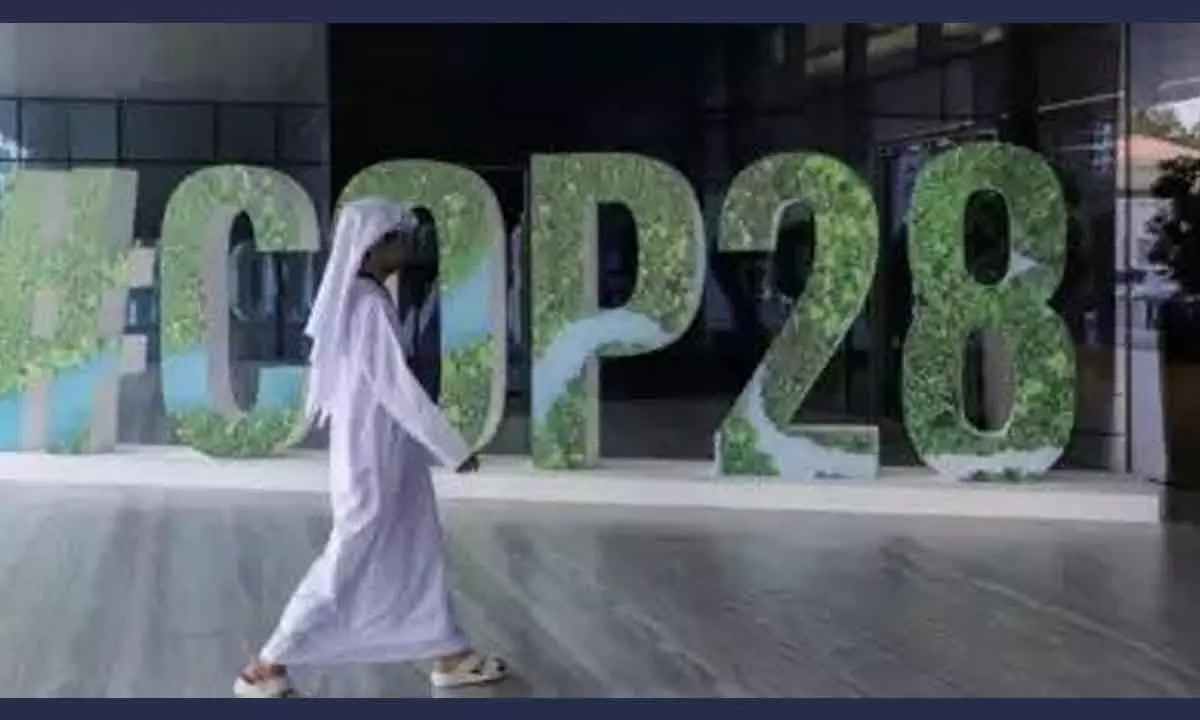COP28 enters last day with no pact on fossil fuels
The UN summit was scheduled to end on Teusday after nearly 2 weeks of speeches, demonstrations and negotiations
image for illustrative purpose

The head of OPEC, the powerful oil cartel, was reported to have written to member countries last week urging them to block any language to phase out or phase down fossil fuels
No Consensus on Phase-out
- Al-Suwaidi gave conflicting comments about the future of the fossil fuel phase-out
- Countries like Saudi Arabia won’t accept phase-out language
- European countries and small island nations say unacceptable to leave those words out
Dubai: A stark standoff between countries that want a dramatic phase-out to fossil fuels causing damaging warming and those that don't crushed hopes for an on-time finish to a critical climate summit Tuesday.
The United Nations-led summit known as COP28 was scheduled to end around midday after nearly two weeks of speeches, demonstrations and negotiations. But the climate talks almost always run long, and Monday's release of a draft agreement angered countries that insist on a commitment for rapid phase-out of coal, oil and gas. Instead, the draft called for countries to reduce “consumption and production of fossil fuels, in a just, orderly and equitable manner.” Majid al-Suwaidi, COP28 Director-General, said Monday night's draft was meant to get countries to start talking and presenting what are deal-killers for them, which are called “red lines.” “The text we released was a starting point for discussions,” he said at a news conference midday on Tuesday. “When we released it, we knew opinions were polarised, but what we didn't know was where each country's red lines were.” “We spent last night talking, taking in that feedback, and that has put us in a position to draft a new text,” he said.
A new draft was promised to come out on Tuesday, but much of the critical work in the Dubai-based talks keeps getting delayed. A senior negotiator for a developing nation who did not want to be named so as to not impact negotiations said the fossil fuel phase-out language would not be in the next version. Al-Suwaidi gave conflicting comments about the future of the fossil fuel phase-out language, which at one point he said “doesn't work.” “It's important that we have the right language when it comes to fossil fuels. It's important that we think about how we get that balance. There are those who want phased out. There are those who want phased down,” al-Suwaidi said. “The point is, is to get a consensus.” “We’ve said as a presidency, we think fossil fuel language needs to be part of that," al-Suwaidi said. "Now we need the parties to say, how do they land? We've spent a year knowing that that language doesn't work."
On one side are countries such as Saudi Arabia that won't accept phase-out language, while European countries and small island nations say it is unacceptable to leave those words out. Countries wanting phase-out are in a tough position because they may have to accept either a weak deal or no deal, neither of which is good for them, said Alden Meyer, a veteran climate negotiations observer for European think-tank E3G. But Meyer thinks the blowback from phase-out supporters may be the start of strengthening a proposed deal, leaving Saudi Arabia and a few other Gulf States “as the last ones standing in the way of a more ambitious deal. We're not there yet.
There's more work to be done.” The key is finding language that won't make someone block a deal because a final agreement has to be by consensus.

